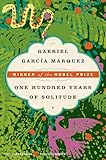
The Pillars of the Earth
By Ken Follett
"Original hardcover edition published by William Morrow and Company Inc.; previously published in a Plume edition"--T.p. verso.

By Ken Follett

By Don DeLillo

By Ken Follett

By Diane Setterfield

By Richard Adams

By Ishmael Beah

By Gabriel Garcia Marquez

By John Banville

By Christopher Buckley

By Nicole Krauss

By Matt Ruff

By Allan Gurganus

By Chinua Achebe

By Michael Pollan